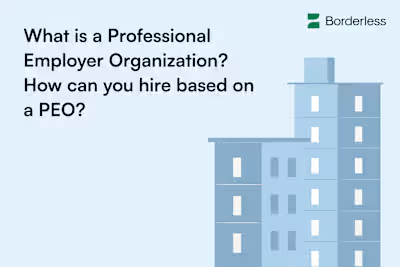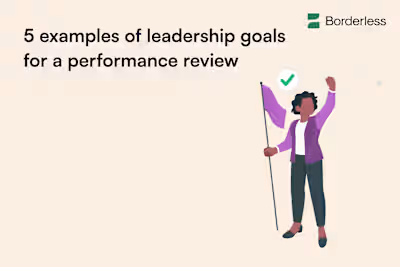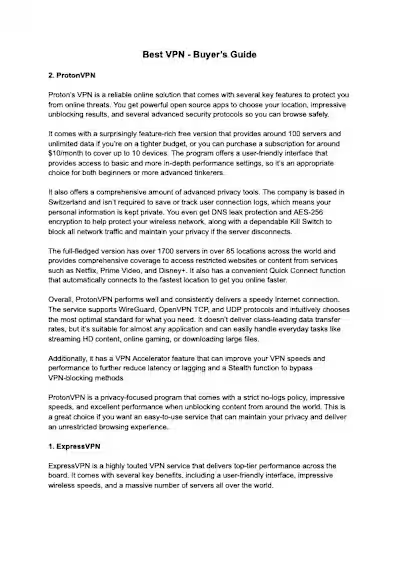Strategies for Success in Blockchain Hiring and Workforce Manag…
With the ubiquitous presence of technology in the workforce, understanding cutting-edge technologies and global hiring trends can help companies remain competitive in a dynamic international market. Blockchain technology, a decentralized ledger that can transparently and accurately record digital transactions, is an emerging technology that can help businesses streamline operations and improve security.
Blockchain technology’s growing influence can provide many advantages to growing companies, such as enabling efficient real-time transactions at any time of day without involving a centralized financial institution.
Staying current with important blockchain trends is beneficial for companies in various sectors, as the technology is now being used in:
Voting systems
Insurance claims
Finance
Real estate
The automotive industry
And more!
However, there are also several challenges companies may face when recruiting global blockchain talent. For example, because this technology is still developing, companies may find it difficult to hire qualified individuals for blockchain jobs or navigate ever-changing regulations.
While several challenges exist, implementing certain strategies can set your company up for success with blockchain hiring. This guide will tell you all about blockchain technology, discuss effective strategies for hiring global blockchain talent, and how an employer of record can help you navigate new global markets at each stage.
What is Blockchain Technology?
A blockchain is a decentralized and public digital ledger that records transactions in a peer-to-peer network, which are a collection of computers on a blockchain system. Instead of relying on a centralized server such as a financial or governmental institution, each connected computer stores a separate copy of the ledger’s records and information. This means that all data logged through a blockchain cannot be altered or compromised, ensuring all information is protected and verified.
In contrast to traditional databases such as the Microsoft SQL Server, MySQL, and more, where data is stored on a single server in organized rows and columns, blockchain technology stores information in blocks. In a blockchain, all blocks of data are linked and secured through cryptography techniques, such as symmetrical and asymmetrical encryption to keep a user’s sensitive data protected. All blocks are stored in chronological order as new information or transactions are recorded.
Blockchain systems value consensus. Data is decentralized, meaning control is collectively distributed to each computer in the network instead of being confined to a single authority, and each peer’s information must match for the block to be considered valid. There are various consensus mechanisms that can be used to achieve a distributed agreement for each block, including Proof of Stake and Proof of Work checks. When consensus is reached, a transaction can be completed.
Blockchain technology also values transparency. Recorded transactions are available to all users and consensually shared with various other sources, ensuring accurate records are maintained and free from tampering. This creates a permanent and transparent method to track the transfer of digital assets, thus making it easier to identify potentially fraudulent behavior. For example, all financial transactions are added to a public ledger that can be accessed by all users, and each peer can monitor payments themselves to preserve the information’s fidelity.
Examples of blockchain technology can be seen in various industries, including finance and supply chain management. Notable blockchain platforms include Ethereum, IBM Blockchain, Hyperledger Fabric, and more. This technology can also be used to transfer other digital assets, such as non-fungible tokens (NFTs) or Bitcoin.
How Does Blockchain Technology Work?
Understanding different aspects of this technology can help with hiring global blockchain talent. Blockchain technology provides a safe, transparent, and efficient method to transfer digital information.
Blockchain networks are comprised of various participants, including:
Blockchain Users: Individuals facilitating transactions with other network notes
Regulators: Users with certain permissions to verify transactions
Network Operators: Users who manage or monitor the network
Certificate Authorities: Users who manage the certificates required by the network
When a blockchain collects information from a transaction, the data is entered into a block and multiple copies are saved on various nodes, which prevents the information from being tampered with. Each block is part of a chain of data and confirms information such as the time of a transaction, amount, and more, and the sequence of data cannot be altered or reversed.
After collection, information becomes encrypted and is referred to as a hash – a digitized fingerprint of a set of data, transactions, or documents. Hashes connect information chronologically to the previous block, allowing different nodes to validate data.
Smart Contracts
The blockchain industry also utilizes multiple algorithms such as smart contracts to process information. Smart contracts are digital contracts that set out certain terms for each transaction and are automatically performed when the determined conditions are met, significantly accelerating the process. Determined conditions are triggers that initiate the execution process and can include various forms of digital information, such as a date, a completed transaction, assets reaching a certain value, or other verifiable events. Contracts can also be initiated if all relevant parties perform a pre-determined action.
For a transaction to be completed, each task must be adequately met and the network must confirm the transaction’s validity. On average, every digital transaction in a blockchain takes roughly one hour to process.
Proof of Work
Proof of work is a blockchain network’s consensus mechanism that helps verify digital transactions. This ultimately helps ensure that all new transactions in a chain are verified and accurate. Proof of work requires network participants to validate all new information, usually in exchange for additional cryptocurrency when performed. However, verifying new information and mining currency requires a substantial amount of data processing power because complicated algorithms must be accounted for to add blocks to the chain.
POW checks allow users to build trust with other network participants in an anonymous system, and each new check must also be verified by other nodes, though this process is also typically resource-intensive.
Proof of Stake
Other blockchain technology systems utilize a proof of stake check to confirm transactions and create new information blocks. Proof of stake is another consensus mechanism, which selects users to validate new information based on the amount of staked coins they currently have.
Instead of requiring users to solve a puzzle or algorithm, POS checks require each participant to stake a predetermined amount of digital assets in a smart contract to ensure accuracy throughout the transaction process.
Validators are selected randomly, and each verified transaction can earn a participant additional cryptocurrency in exchange, though users can face punishments if inaccurate data is accepted. Generally, this process also uses much less energy than proof of work verification because transactions are verified by users staking cryptocurrency as collateral instead of processing data, which requires significantly less computational power.
How Can Blockchain Technology Be Used?
While blockchain technology is most commonly associated with efficiently transferring cryptocurrency among network users, it can also be used in several other ways that can help you grow your business and hire talented workers from around the world.
In fact, blockchain technology has a wide range of potential use cases, including:
E-commerce
Contract execution without intermediaries
Education
Crowdfunding or peer-to-peer lending
Insurance
Real estate
Blockchain technology can also be leveraged to streamline practices in various industries. For example, companies can use this technology to simplify certain HR practices, such as recruiting candidates and onboarding new talent. The rising popularity of blockchain systems and demand for implementation has also lead to several emerging positions across various industries, such as blockchain developers, analysts, legal consultants, and more.
How Can Blockchain Technology Help With Hiring?
With the growing and dynamic presence of blockchain technology and cryptocurrency, businesses can gain important insights by monitoring global hiring trends and understanding evolving technology.
Blockchain technology can help you access important information from each employee, such as addresses, employment history, education certificates, and other relevant information needed by employers in a single application.
Aspects of blockchain technology such as smart contracts can streamline various aspects of the hiring process securely.
Advantages of Hiring Blockchain Talent
Companies that hire blockchain talent from around the world can access a wide range of notable benefits. Hiring employees with blockchain expertise can help companies implement better cybersecurity practices and develop systems that can streamline important business operations while improving transparency and accuracy when tracking transactions. Recruiting individuals with in-depth blockchain knowledge can also help you remain compliant with any legal regulations. Additionally, implementing blockchain systems can help you save time in the recruitment and onboarding process by efficiently providing access to relevant information.
With the growing presence of new technology in the global economy, companies should consider hiring individuals with up-to-date skills and knowledge to remain competitive in rapidly changing markets.
Innovation
Companies that focus on blockchain hiring can benefit from building a workforce with expertise in cutting-edge and emerging technology. Hiring employees who know the ins and outs of blockchain technology and each platform’s associated cryptocurrency can help your company navigate any challenges that may arise as technology continues to be developed and utilized in the global economy.
Understanding emerging trends can also help your company utilize blockchain technologies in innovative ways to increase productivity and improve accuracy when keeping records. Knowledgeable employees can also help your company implement these technologies efficiently or address any issues that may arise at any point when assimilating blockchain networks or defining parameters for algorithms.
Time Savings
Adapting blockchain technology and paying attention to blockchain hiring trends can help you save time throughout the recruitment process. For example, soft skills like creativity and communication are becoming increasingly important for blockchain professionals. Understanding the need for these qualities can help you efficiently vet potential candidates when hiring for roles such as blockchain developers, auditors, or UX designers. Additionally, interdisciplinary talent is becoming much more valuable in blockchain, so hiring individuals with expertise in various sectors can help you fill vital skill gaps faster.
Blockchain professionals can also implement strategies and technology that can help your company automate the recruitment process. This includes setting up systems that allow your organization to access and verify any potential candidate’s qualifications, personal information, visa status, and background checks quickly while keeping all relevant information secure.
More Efficient Onboarding
Using smart contracts in the hiring process can help companies accelerate the onboarding process.
This is done by providing new hires with all the relevant information needed before beginning. Blockchain technology can also help companies tap into decentralized job markets that don’t require additional intermediaries, such as popular job boards to sift through candidates.
Blockchain technology can also hold other important aspects of employment, such as payroll details.
Risks Associated With Hiring Blockchain Professionals
While hiring global blockchain talent can help companies implement innovative technologies and streamline important business operations, several risks growing companies should be aware of before developing strategies or building a team of professionals.
Understanding the challenges associated with blockchain hiring and how a global employer of record can help you successfully navigate the complexities of international hiring can help you remain compliant, especially when expanding into new markets.
Fluctuating Demands with Global Employment
Blockchain technology is a newer and still-developing technology, meaning the demand for certain skill sets may vary between different markets and industries. Several factors can cause the demand for individuals with expertise in these areas to fluctuate significantly.
For example, companies in rapidly changing sectors such as technology may need to prioritize hiring individuals with cutting-edge expertise more than companies in other industries, such as retail.
Additional geopolitical challenges can also impact the supply of available professionals, such as changes in regulation.
Lack of Awareness
The lack of awareness from potential candidates or other major institutions is another major challenge companies may face when hiring workers. Because blockchain technology evolves rapidly, a lack of understanding from political or educational bodies can impact the implementation of this technology.
Professionals in industries such as HR may not have a strong understanding of blockchain technology or how it works, and this can pose significant challenges when evaluating talent or hiring specialized workers.
Ultimately, the lack of understanding can lead to a more limited talent pool. However, partnering with a global employer of record can help connect you with the top talent available.
Strategies for Success With Blockchain Hiring
Understanding what blockchain technology is, how it works, and how new technology can help you grow your business is important when planning for the future or managing your existing international team.
With blockchain’s growing presence and implementation in the global market, companies can benefit in several major ways by developing strategies that incorporate and utilize these emerging technologies.
In addition to connecting you with global blockchain talent, using Employer of Record services can help you remain compliant with complicated labor laws and other employment-related regulations.
Gain Insights Into the Technology
Any successful strategy for navigating the complicated world of blockchain technology begins with gaining an understanding of how the technology works and what it can do. Having insights into the market can allow you to customize job postings depending on the job, recruit talent, and communicate with professionals within the industry.
Understanding the roles and requirements for different blockchain positions or programming languages can help narrow the job search. For example, companies hiring talent in the field should be aware of the differences between positions such as blockchain developers, auditors, or decentralized finance experts.
Competitive Compensation
Offering competitive compensation in the form of wages, benefits, and fringe benefits can help companies remain competitive when recruiting blockchain talent, regardless of the employee’s jurisdiction.
Because of the relatively limited pool of talent to choose from and the requirement for hands-on experience to learn new technologies, it can be difficult to hire top talent in the industry. Professionals in the industry must also have expertise in various aspects, including cryptography, cybersecurity, and more.
In 2024, blockchain developers make roughly $73 per hour, while the average salary for a decentralized finance expert can range from $70,000 to over $120,000 annually. Offering lucrative wages and fringe benefits such as flexible working arrangements, effective training programs, and clear paths for career development can help your company hire the best workers in a cutting-edge field.
Hiring skilled workers can also help facilitate an environment that prioritizes innovation and problem-solving, which is important when recruiting blockchain professionals. Alternatively, companies can also choose to engage independent contractors for these roles.
Provide Learning Opportunities
Providing ample opportunities to gain hands-on experience with new technologies is another strategy that can help set companies up for success when hiring blockchain talent globally. Blockchain technology is constantly evolving and implementing new practices, meaning blockchain professionals will need to stay up-to-date with new protocols for reaching consensus, writing smart contracts, and more.
As blockchain technology continues to develop and expand into new industries, employees with new skill sets will be needed to adapt to the latest market trends. Providing continuous opportunities for learning and development can also improve employee engagement, which can lead to higher levels of talent retention and loyalty. Additionally, this can help you fill important positions in blockchain development, auditing, and implementation much more efficiently.
Stay Current with Local Employment Laws
Staying up-to-date with changing regulations and requirements is another strategy companies can use for successful blockchain hiring.
Changes in regulations and compliance laws can impact how technologies are used, meaning it’s important for companies to monitor global trends to efficiently adapt to emerging trends or changing market conditions. Understanding market dynamics can also help you identify important skills gaps within your organization.
This can also help companies identify new growth opportunities or ways to leverage emerging technology in the blockchain space. Business leaders can receive accurate and current information regarding the industry by following reputable sources, networking in blockchain communities, and more.
Why Consider an Employer of Record or Global Professional Employer Organization?
Partnering with an employer of record like Borderless can help growing companies with blockchain hiring, verifying information, maintaining privacy, onboarding, and more. An EOR acts as the legal employer when companies hire international workers, eliminating the requirement for entity establishment in the country of hire.
An employer of record provides several HR-associated services that can make it easier to hire top international talent.
A global employer of record also handles most aspects of employment to ensure compliance, which includes:
Payroll processing
Providing employees with benefits
Keeping up-to-date records
Drafting legal employment contracts
Onboarding new hires
Taxation requirements
In addition to helping companies efficiently hire employees, employers of record can also help organizations quickly access global markets.
Hiring global blockchain talent with expertise in emerging technologies can help your business remain competitive and compliant in a rapidly evolving industry. However, gaining knowledge of blockchain technology can help growing companies successfully plan for the future.
Developing an effective strategy can help you navigate any complexities with blockchain hiring trends and help you recruit, retain, and manage your global workforce.
Why Borderless?
Borderless is an award-winning Employer of Record platform that offers an extensive range of services, making it easy to hire workers, accurately process payroll, keep accurate employment records, access locally compliant benefits packages, and more through a user-friendly interface.
Partnering with a global employer of record eliminates the need to stay up-to-date with changing employment laws and blockchain regulations around the world. Instead, you can spend more time learning about cutting-edge technologies and finding employees with the right skills to support growth.
With Borderless’s AI-powered platform, you can quickly and easily create contracts, analyze legal agreements, or ask important employment-related questions. Our customer support team is also here to support you through all the challenges associated with global blockchain hiring, and our all-in-one platform doesn’t require any upfront costs, deposits, or setup fees.
Contact us today to see how you can hire your blockchain resource located anywhere in the world.
Disclaimer
Borderless does not provide legal services or legal advice to customers, contractors, employees, partners, or the general public. We are not lawyers or paralegals. Please read our full disclaimer here.
Like this project
Posted Mar 7, 2024
Everything you need to know about blockchain technology and what strategies to use to successfully hire global blockchain talent.







